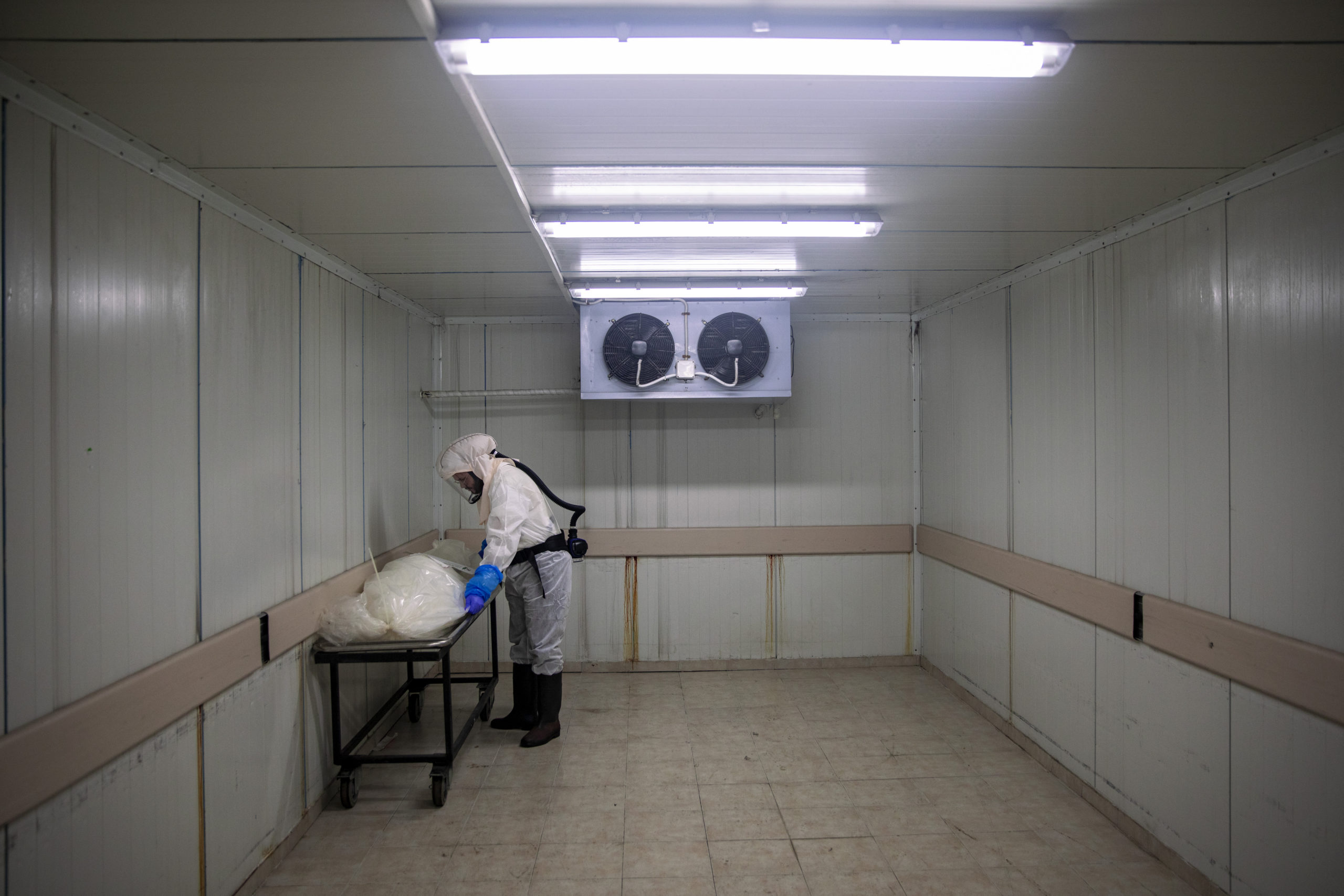
A worker from “Hevra Kadisha,” Israel’s official Jewish burial society, prepares a body before a funeral procession at a special morgue for COVID-19 victims in the central Israeli city of Holon, near Tel Aviv, Wednesday, Sept. 23, 2020. With Israel facing one of the world’s worst outbreaks, burial workers have been forced to wear protective gear and take other safety measures as they cope with a growing number of coronavirus-related deaths. (AP Photo/Oded Balilty)
JERUSALEM — Israel on Thursday moved to further tighten its second countrywide lockdown as coronavirus cases continued to soar.
The Cabinet voted to close all nonessential businesses, including open-air markets. Prayers and political demonstrations would be limited to open spaces and no more than 20 people, and participants would not be able to travel more than a kilometer (0.6 miles) from home for either.
The measures are set to go into force on Friday afternoon, as the country shuts down for the weekly Sabbath ahead of Yom Kippur on Sunday and Monday. Israel annually closes down for 24 hours in honor of the solemn holiday.
The restrictions are to last for at least two weeks, but synagogues will be allowed to open under restrictive conditions for Yom Kippur prayers.
The restrictions on demonstrations are subject to approval by the Knesset, Israel’s parliament, and the limits on both prayers and protests could spark a backlash. An anti-lockdown demonstration was planned for later in the day in front of the Knesset.
Israel’s politically influential ultra-Orthodox community has objected to limits on public prayer during the ongoing Jewish High Holidays, and opponents of Prime Minister Benjamin Netanyahu have accused the government of using the lockdown as a cover to end weekly demonstrations against his handling of the crisis.
Israel is currently reporting nearly 7,000 new daily cases, making the outbreak in the country of 9 million people among the worst in the world on a per capita basis.
Israel won praise this spring when it swiftly moved to seal its borders and shut down most businesses. By May, its daily rate of new cases had dropped into the double-digits. But then it reopened the economy too quickly, leading to a surge of new infections over the summer.
Many businesses, meanwhile, have yet to recover from the earlier lockdown, and the new restrictions are expected to take a heavy toll on the economy even though they are being imposed during the holidays when many businesses would ordinarily scale back hours.
Israel has reported a total of more than 200,000 cases since the pandemic began, including 1,335 deaths. It has more than 50,000 active cases.